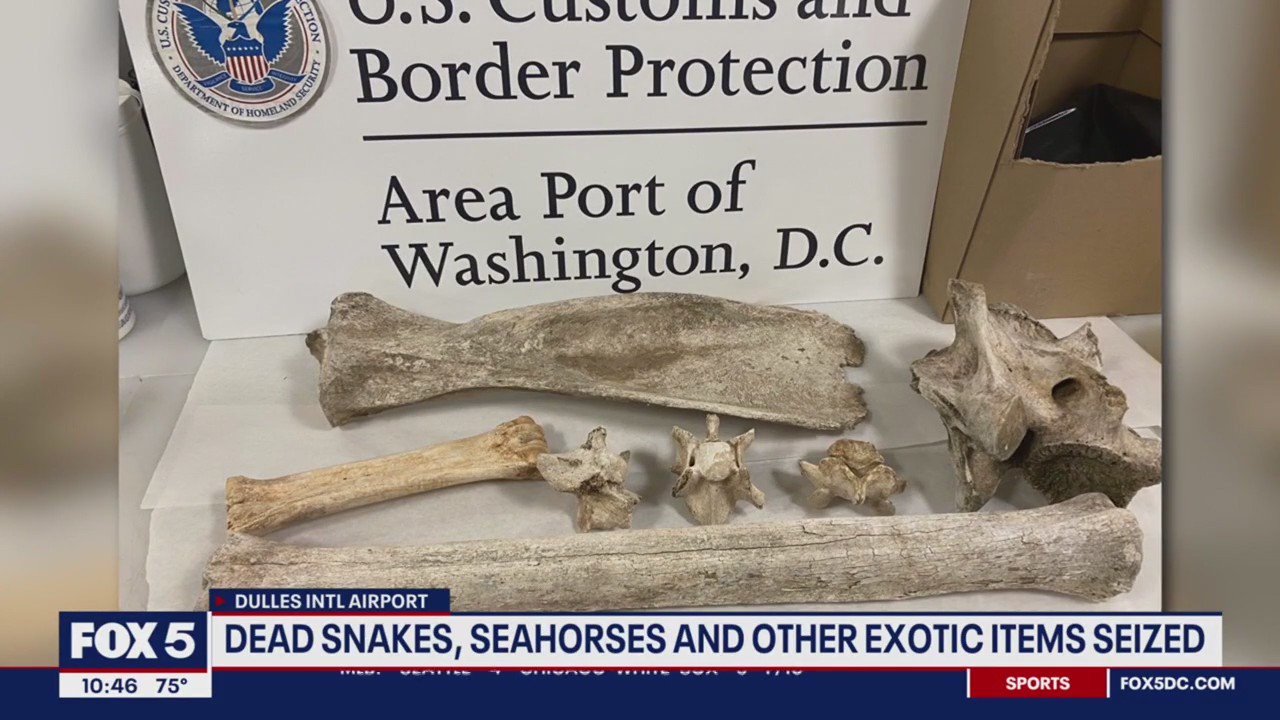Seahorses, snakes, snail ointment seized at Dulles International Airport, CBP says

Dead snakes, seahorses and other exotic items seized at Dulles Airport
Anyone who’s flown internationally into Dulles knows those lines at customs can be awfully long. Here’s one reason why: Just this month, a number of very unusual items have been seized by inspectors. FOX 5’s Josh Rosenthal is at the airport to show you what they are.
DULLES, Va. - U.S. Customs and Border Protection agents made a couple of strange seizures at Dulles International Airport earlier this month.
CBP says agriculture specialists took seahorses, snakes, snake oil and several pork products from two different passengers both arriving from Vietnam.
The first incident was on Aug. 1. The traveler, who was destined for Fairfax, was pulled out by agents for a secondary baggage examination. Agriculture specialists and inspectors with U.S. Fish and Wildlife Service first found prohibited pork products in the passenger's luggage. A further search revealed that the traveler was also in possession of 77 dry seahorses, five jars of snail ointment and five dead snakes.
The second traveler, who arrived on Aug. 4, was stopped at Dulles on their way to San Francisco. A search of the passenger’s bag uncovered four prohibited pork products and 50 small boxes of a commercial herbal liquid medicine that listed its ingredients as snake oil.
"Though we may consider some animal-based products to be unusual, people in other parts of the world may consider them to be normal," said Christine Waugh, CBP’s Acting Area Port Director for Washington, D.C. "However, travelers visiting the United States should understand that Customs and Border Protection is committed to protecting our nation’s agricultural industries and enforcing our wildlife and import laws which may result in the seizure of their animal-based products."
CBP agriculture specialists seized all of the prohibited products and turned them over to U.S. Fish and Wildlife Service. inspectors, who are continuing to investigate.
"All wildlife items that are imported to or exported from the U.S. — parts, products, or live animals — must be accompanied by proper documentation and declared," said Ryan Noel, special agent in charge with USFWS.
Illicit wildlife trade continues to be an international problem and is the leading cause pushing certain species to extinction, officials say, and the market is estimated to be in the billions of dollars.

